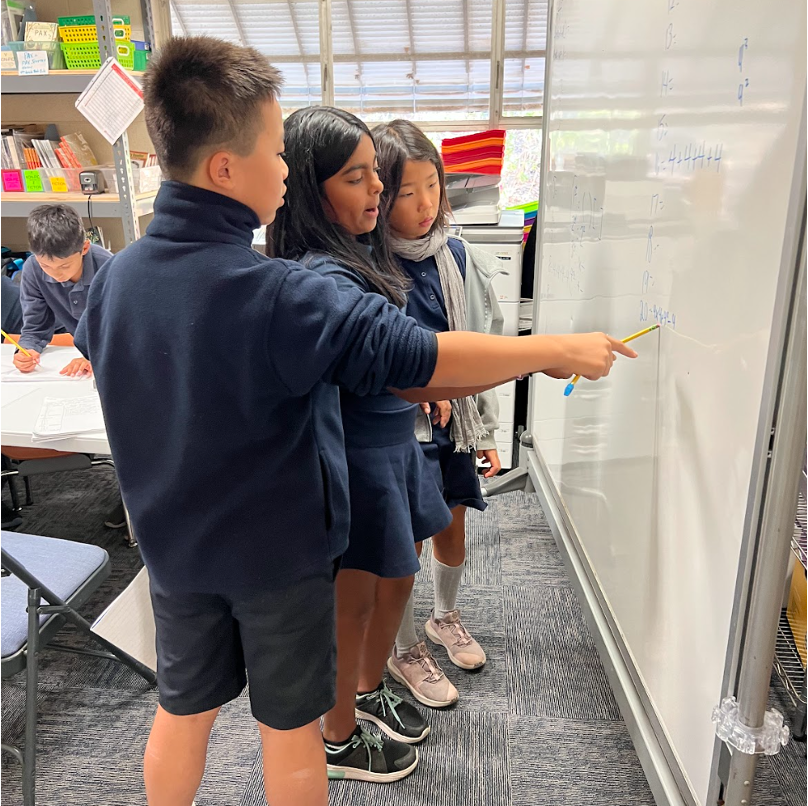Click here to listen to Jam Episode 48 – The Goldilocks Principle
We all know the story of Goldilocks and the Three Bears, and how each time through trial and error she finds the thing – the chair, the porridge, the bed – that is “just right.” We’ve probably heard in various settings about the Goldilocks principle or Goldilocks effect, describing a situation in which someone gets just the right amount of something.
At Hillbrook, we focus on providing the just right amount of challenge for your child each and every day. Perhaps we might call it the Goldilocks principle of learning. As educators, we have increasingly come to understand the science of learning, the ways to help us identify each child’s proximal zone of development (the space between what a learner can do without assistance and what a learner can do with adult guidance or in collaboration with more capable peers) and to create the conditions that allow a child to be in productive struggle at least some of the day. To be clear, no learner – child or adult – can spend the whole day in productive struggle. That would be overwhelming and exhausting. The goal with children is to help them develop the resilience to struggle and do hard things, recognizing that it is a winding and circuitous path, not a linear function.
Today at our 5th grade Year Ahead, Director of Teaching & Learning Ilsa Dohmen shared multiple ways in which we help 10 and 11 year olds experience that just right challenge. Ilsa talked about textbook extension activities and challenge groups in math, book clubs tied to reading levels and interests, and writing assignments that offered significant space for creativity and extension. For example, a child might be asked to write a prequel or create an alternative ending for a book, an activity that requires a clear understanding of what has been read and the flexibility to imagine what came before or what else could have been.
At the simplest level, the just right challenge reflects several key principles of our program:
- The creation of low floor, high ceiling activities that enable children to find success. These activities provide entry points for a broad range of learners, while ensuring all students can be pushed and challenged to extend themselves.
- The use of data – both formal and informal – to help in placing children in experiences that will provide them the right level of challenge. Challenge groups, for example, are decided at least in part by periodic pre-assessments which help the teacher – and the child -understand what they know and what they are still trying to master.
- A combination of open invitation – “would you like to join the math challenge group?” and gentle and firm nudges – “I am going to ask you to join the math challenge group this week because I know you are ready for this activity” – depending on the child and the moment. Different children need different things at different moments, and our teachers are experts at discerning the difference.
The other key ingredient to all of this? Our partnership with you, our parents. You will see and hear things at home that we do not experience at school, and, of course, the reverse is true. If you feel like your child is struggling or if you feel like they are not being challenged enough, we ask you to reach out to our teachers, to Challenge Coach Kelly Scholten, to Ilsa, or to our Division Heads – Heather Stinnett, Gulliver LaValle, or Mike Peller – to share your questions and concerns and to help us partner with you to ensure your child is finding that just right challenge each and every day. Finding things that are “just right,” after all, should not be limited to Goldilocks.

